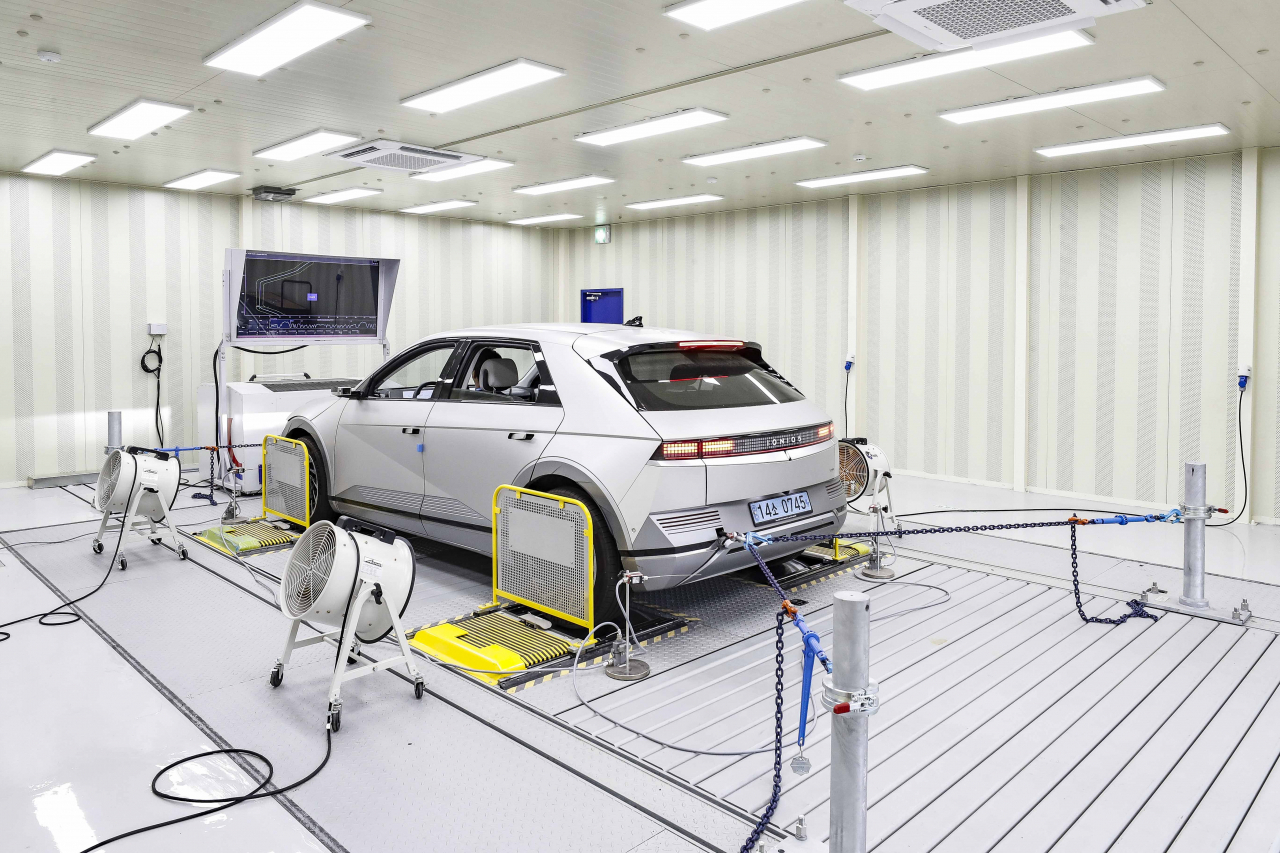[From The Scene] EV diagnostics key to safety: KITECH
By Byun Hye-jinPublished : May 7, 2023 - 15:04

JEJU, Jeju Island -- Amid the booming market for electric vehicles, demand for car maintenance and diagnostics services has been on the rise to prevent fatal accidents on the roads.
In a move to offer enhanced diagnostic technology for EV failure and repair, the Jeju Island unit of the state-run Korea Institute of Industrial Technology demonstrated a test that collects data from driving electric cars in front of the media on Thursday.
During the test performed at the institute's headquarters in the northern part of Jeju Island, Hyundai Motor Group’s flagship electric sport utility vehicle Ioniq 5 ran on a chassis dynamometer, a device that uses roller assemblies to simulate various road conditions, at a speed of 100 kilometers per hour.
Four circulators were turned on to give wind resistance the car would experience while driving at that speed. A monitor showed it drove along curves like on a real road to see how the test-driving affects the chassis components, which include the brakes, tires and suspension.
During actual driving, these car parts if broken, loosened or showed heat deformation could expose drivers to danger, according to Hong Young-sun, head of the EV diagnostics technology center at the institute.
As of 2021, the most frequent EV failures occurred in electric motors, taking up 39 percent of all reported malfunctions, followed by battery issues at 27 percent, according to Hong who cited data from auto associations, car repair shops and Hyundai Motor Group.
“Jeju is the nation’s third-largest city in terms of EV sales, taking up 10.4 percent as of 2021. But there has been little progress in maintenance services,” said Hong.
These tests are part of several data collection projects the center is running on EVs to develop diagnostic technology. Under one project, the institute is monitoring 100 EVs in real time, mostly Hyundai and Kia taxis running within Jeju. So far, the center has piled up 2 terabytes of data from some 200 cars.
With the data, the organization aims to create an open database on EV repairs that can be shared by all stakeholder groups.
“For more detailed tests, EVs, equipped with faulty components, are driven (at the center) for up to six to eight hours at the maximum speed of 200 kilometers per hour,” said Kim Woo-jung, a researcher at the center.
Of the total 29 diagnostic equipment, it operates a motor testbed and cell and module cycler to detect malfunctions in electric motors and batteries.
“But we have limited access to defective batteries from the mainland because when EVs are shipped to Jeju (via ship), there is a risk of being exposed to salt which can be linked to safety issues during battery tests,” said Kim.
The center has not yet compiled data on battery-powered cars catching fire, one of the most fatal EV failures, largely due to safety reasons in conducting crash tests. Instead, they plan to carry out other tests using old EVs as the batteries are more likely to have been subjected to wear and tear.




















